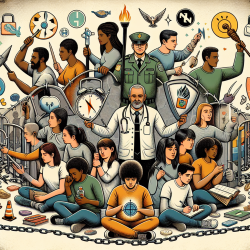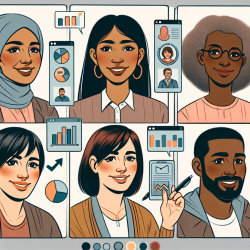The mental health and substance use challenges faced by today’s youth are daunting. Recent studies highlight alarming statistics, such as the 46% of parents noticing a new or worsening mental health challenge in their teens since the COVID-19 pandemic began. Additionally, drug use among 8th graders increased by 61% between 2016 and 2020. These figures underscore the urgent need for effective intervention strategies.
The Role of Practitioners
Practitioners play a crucial role in addressing these challenges. They are often the first line of defense in recognizing and responding to mental health and substance use issues among youth. By implementing evidence-based programs and staying informed about current research, practitioners can significantly impact the well-being of young people.
Youth Mental Health First Aid (YMHFA)
One such program is Youth Mental Health First Aid (YMHFA), which equips adults who regularly interact with young people with the skills needed to identify and respond to mental health challenges. This program reviews typical adolescent development and introduces a 5-step Action Plan for assisting young people in crisis or non-crisis situations.
- Recognize the Signs: YMHFA helps practitioners recognize signs of mental illnesses and addictions, increasing their confidence in providing support.
- Action-Oriented: The program encourages proactive measures, equipping practitioners with tools to address issues before they escalate.
- Widespread Impact: Since its inception, YMHFA has trained millions, with a goal to reach 22 million nationally.
Teen Mental Health First Aid (tMHFA)
Complementing YMHFA is Teen Mental Health First Aid (tMHFA), designed for teens aged 15–18. This program empowers teens to support peers experiencing mental health challenges, teaching them how to be supportive friends and when to involve trusted adults.
- Peer Support: Teens often turn to friends first; tMHFA provides them with the skills to offer effective support.
- Real Impact: Surveys show that a significant percentage of trained teens use their skills to manage personal stress and assist others.
The Getting Candid Toolkit
The National Council for Mental Wellbeing, in collaboration with the CDC, developed the Getting Candid Toolkit—a comprehensive resource for practitioners focusing on youth substance use prevention. This toolkit provides guidance on communication strategies, implementation support, and educational materials.
- Evidence-Based Approach: The toolkit was developed through extensive research and consultation with over 2000 youth-serving providers and experts.
- Diverse Resources: It includes tip sheets, social media graphics, videos, webinars, and more, all designed to enhance practitioner effectiveness.
Encouraging Further Research
The field of youth mental health and substance use is dynamic, requiring continuous learning and adaptation. Practitioners are encouraged to engage with ongoing research to refine their approaches further. By staying informed about new findings and methodologies, they can provide the most effective support possible.
For those interested in delving deeper into this topic, I highly recommend reading the original research paper titled A Serious Response to Youth Mental Health and Substance Use.
Together, through informed action and dedicated effort, we can address the pressing issues of youth mental health and substance use, offering our young people a healthier future.










